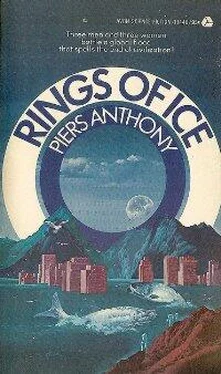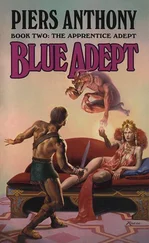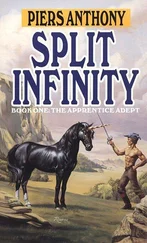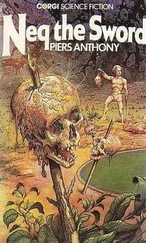“She’s probably right. But she doesn’t dare have a baby.”
“Yes.”
“Did Gordon—?”
“No. He’s ambiguous about sex.”
“Why didn’t you?”
“I suppose I should have.”
“Thatch, you knew it had to come to this eventually. You can’t turn down experience, then plead no experience.”
“I think I’d know what to do if there were love.”
If there were love…
“You know, Thatch, when I came down here, I was afraid. But I see that I don’t have to be.”
“Yes.”
“Will you stop saying ‘yes’!”
“Sorry.”
“Because you aren’t like the men I have known. Or thought I knew. You really aren’t going to push.”
“I’m glad you understand. It wouldn’t be right.”
Once she would have accused him of homosexual inclinations, but now she knew that his relationship with Gus was not of that nature. The two men had their peculiar social and intellectual interdependence, but in other matters they were separate. Instead she tried another thrust: “Because there must be love, and you don’t love me.”
He was silent.
“Did I say something wrong?” she asked after a moment.
“No, of course not. There can’t be love unless it’s mutual.”
She felt a thrill of something unfamiliar. “Are you saying you do?”
“No, no, no, I didn’t say that. It isn’t right.”
She felt the sting of tears in her eyes again. “Thatch, you never said anything!”
“There was never anything to say.”
“I can’t love anyone. I don’t know why.”
“Maybe you never got to know anyone well enough.”
“Did you?”
“Gus always handled things.”
“Especially the girls!”
“Yes.”
“Well, I can’t stand Gus.”
“Maybe you should get back on your bed now.”
She took a breath. “No, I came here for a purpose.”
“But I told you—”
“Couldn’t you do it platonically? Weeks of group effort have gone into fattening this lamb for the slaughter! Mustn’t waste it. You are the least of evils, you know.” She was aware that she was making it about as inviting as an enema, but couldn’t help her own perversity.
“No. Not platonically. Not with you. It would destroy—”
“Destroy what?” What was the answer she sought?
“Any chance for a real…” He did not finish.
He wanted her love, not her body. He wanted too much.
“When a horse breaks a leg,” she said, “you shoot him. Because it’s better than letting him suffer. You don’t have to love the horse.”
“What has that to do with—”
She laughed, not easily. “I hurt my ankle.” Did people still speak of a pregnant girl as one who had ‘sprained her ankle’?
“It will get better.”
“You’re not much for analogy, are you?”
“No.”
“It has to be done, and if I don’t do it this time I’ll never get up my nerve again. It would disgust me to have to get aggressive, and I might retch on you.” She lifted her head to look at him. “Please, Thatch—I’ll just lie here, and you do it. Quickly. I’ve gone as far as I can.”
“I don’t like this,” he said, and she knew he meant it. She was not insulted, knowing his reason.
“I know it’s not fair to you. I wish I could be like Karen. But I can’t.”
“If you were like Karen, I couldn’t love—”
“So it has to be like an operation,” she said quickly, refusing to hear what would embarrass her. Love was a gift that had to be returned. “And I hope it doesn’t hurt too much.”
“I would never want to hurt you.”
She sat up and struggled out of her clothes. “I want to be hurt. I didn’t realize it until just now, but I want to be punished. Because I fouled up the gasoline mission.”
“Zena!” he said, sounding anguished.
She would have felt better if he had told her to shut up in gutter language. But of course that was not his way. Thatch always gave way to others, concealing his substantial talents even from himself. So he became less than he might be—and would not budge from that subservience.
She forced another laugh. Who was she to talk about being less than one might be! She had the figure and the health to put Karen to shame—but the very notion was sickening. “I’m making you out to be an instrument of torture, aren’t I.” She put her hand on his, and felt him shaking. “I take it all back. If I need punishment, it surely dates from decades ago. I have to get pregnant, so Gus will get off my back, and I’d rather it be yours. Maybe you could call that love.”
“I wish it were,” he said wistfully.
I wish it were, too, she thought—but could not say it. “You do know what to do, don’t you?”
“Tell me to stop, if—”
She was taken aback. She had anticipated yet another demurral, and perhaps an extension of the debate until Gordon returned, at which point the affair would have to be cut off. Thus she would gain credit for trying—and failing through circumstances.
She called herself a hypocrite, and decided to go through with it no matter what. She spread her legs and pulled him against her. He was heavy, making breathing difficult. The position wasn’t right, and he had to back off to adjust. Maybe he’ll give up! she thought wildly.
But she had really given him a directive, and Thatch always followed through on directives, however unreasonable they might seem. There was a probing, and, oddly, excitement. She was crossing a long-feared boundary, going off the high board with the icy water far below… and suddenly there was pain.
She gasped for breath. Slowly, shallowly, it came. She realized that she had blacked out for an instant. She turned her head, feeling the weight of her eyeballs, and saw her surroundings.
She was in a space ship, breaking free of Earth’s well of gravity. The lone civilian meteorologist to be consulted on this classified paramilitary project.
Somewhere there was pain. She squirmed, but could not alleviate it at the moment.
“You are conversant with the power crisis,” the officer said to her. “With civilian mismanagement, fossil fuels banned, and nuclear equipment not yet sufficient, we have to have a cheap, nonpolluting, now source of power. Obviously, this is the sun. There is enough energy in a few square miles of sunlight over Earth to produce a million kilowatts of clean power. The problem is putting the mirrors into orbit. If we can find a way to focus that light without mirrors, we’ve got it licked.”
“It will take more than a million kilowatts to fill Earth’s power deficit,” Zena said.
“We plan to set up the equivalent of a thousand million-kilowatt stations,” he said. “In a band about the equator. This will be an adequate temporary relief to the energy shortage.”
“Just like that? A billion kilowatts? With no mirrors?”
“No artificial mirrors. Actually, ice is a fine reflective surface. Picture what a ring of ice around the world would do.”
“You would still have to get the ice there—and you could hardly take it from the oceans.”
He showed her a slide. “This is a nebula,” he said. “A small one, containing only a few billion tons of matter— ninety-five per cent of which is ice. It is drifting in a course that will miss Earth by only a few million miles.”
“Suddenly I see. You want to divert this icy nebula to intersect exactly with the orbit of Earth. And use all that ice to set up a cloud of crystalline mirrors.”
“Precisely. The ice will form a pattern of concentric circles about the Earth, each highly reflective. Stations on the ground will receive that focused light and process it into usable power. In less than a year the energy will be flowing—the cheapest source yet available—and the cleanest.”
Читать дальше










